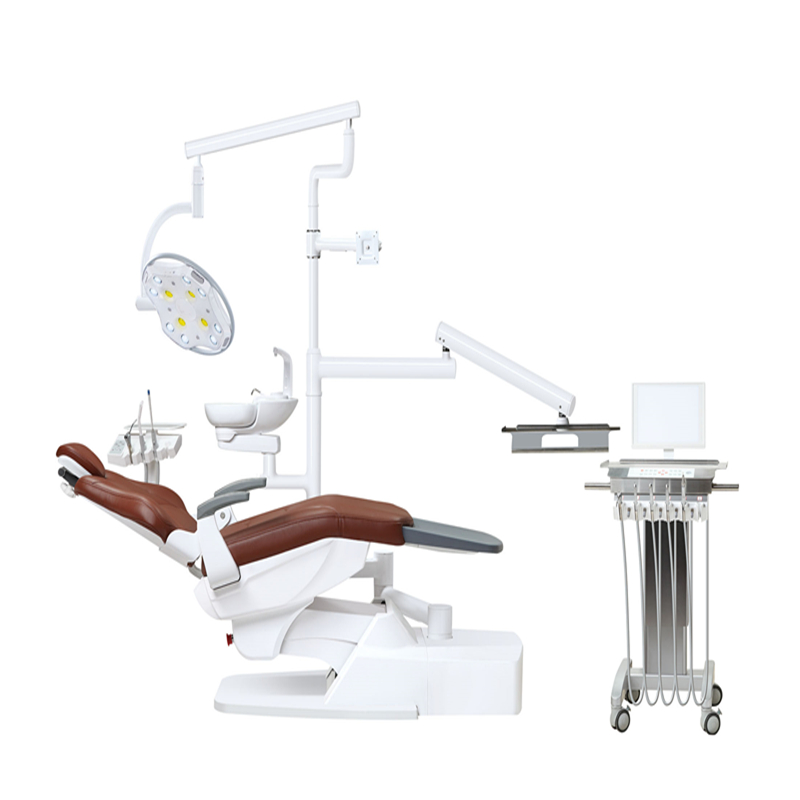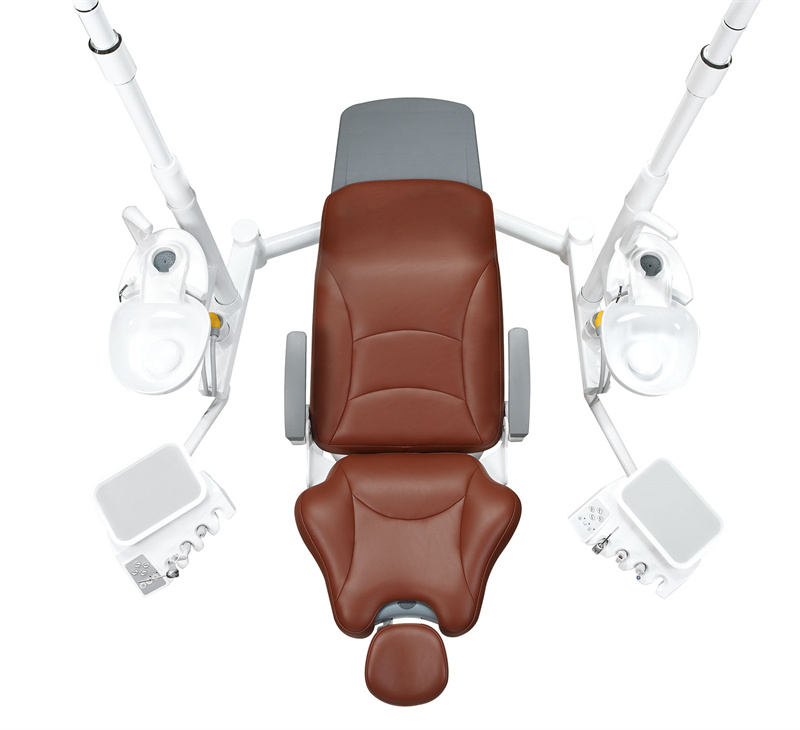How Does An Implant Dental Unit Work?
An implant dental unit is a specialized piece of equipment used in dental implant procedures. It is intended to offer a solid and precise platform for the placement of dental implants, which are artificial tooth roots that support replacement teeth. The unit consists of several components that work together to ensure the success of the implant procedure.
Components of an Implant Dental Unit
Surgical Motor:The surgical motor is the main power source for the unit. It provides the necessary torque and speed for drilling into the jawbone during the implant procedure.
Handpiece: The handpiece is the tool that the dentist holds and uses to drill into the jawbone. It is coupled to the surgical motor and provides precise control and maneuverability.
Irrigation System: The irrigation system provides a constant flow of sterile saline solution to the implant site during the drilling process. This helps to cool the bone and prevent overheating, which can damage the bone and lead to implant failure.
Implant Mount: The implant mount is a specialized tool that holds the dental implant in place during the placement procedure. It guarantees that the implant is put at the appropriate angle and depth.
Torque Wrench: The torque wrench is used to tighten the dental implant into the jawbone. It allows the dentist to apply the correct amount of torque to ensure a secure fit.
Implant Placement Procedure
Preparation:Before the treatment begins, a local anesthetic is injected into the patient's mouth, and an access point is made in the gum tissue.
Drilling: The surgical motor is used to drill a hole into the jawbone at the implant site. The handpiece is used to guide the drill and ensure that the hole is drilled at the correct angle and depth.
Implant Placement: The dental implant is removed from its sterile packaging and placed into the implant mount. The implant is then inserted into the drilled hole in the jawbone using the torque wrench, with the necessary amount of effort.
Closure: Once the implant is securely in place, the gum tissue is closed over the implant using sutures. A temporary crown may be placed on top of the implant to protect it while it heals.
Healing and Osseointegration
After the implant is placed, the jawbone must heal around the implant in a process called osseointegration. This process can take many months, during which time the implant will become firmly fixed in the jawbone.
During the healing process, the patient may need to follow a soft diet and avoid chewing on the implant site. The dentist will monitor the healing process and may take X-rays to ensure that the implant is integrating properly.
Once the implant has healed and fused with the jawbone, the dentist can connect the replacement tooth or crown to it. This involves taking impressions of the patient's mouth and creating a custom-made crown that matches the patient's natural teeth.
Advantages of Implant Dental Units
Implant dental units offer numerous advantages that enhance the effectiveness and efficiency of dental implant procedures. Below are detailed insights into the key advantages of using implant dental units.
Precision and Control
One of the most significant advantages of implant dental units is the precision and control they provide during the surgical procedure. The surgical motor and handpiece are designed to allow for meticulous drilling and placement of the dental implant. This precision is crucial for ensuring that the implant is positioned correctly within the jawbone, which directly affects the success of osseointegration—the process by which the implant fuses with the bone.
Advanced implant units often come equipped with features such as adjustable torque settings and speed controls. This allows the dentist to adjust the drilling process to the patient's unique demands and bone qualities, reducing the risk of overheating or harming the surrounding tissues.
Enhanced Patient Comfort
The use of an implant dental unit can significantly enhance patient comfort during the procedure. The irrigation system, which delivers a continuous flow of sterile saline solution, helps to cool the drill and the bone during the procedure. This cooling action relieves discomfort and minimizes the danger of thermal injury to the bone, making the treatment less uncomfortable for the patient.
Additionally, the precision of the unit minimizes the need for excessive manipulation of the soft tissues, which can lead to less postoperative discomfort and quicker recovery times. Patients often report a more comfortable experience compared to traditional methods, which can involve more invasive techniques and longer healing periods.
Improved Surgical Efficiency
Implant dental units are intended to streamline the surgical process, resulting in greater efficiency. The incorporation of several equipment and technologies into a single device allows dentists to execute multiple tasks without having to swap instruments regularly. This not only saves time during the procedure but also reduces the overall duration of the surgery, which can be beneficial for both the patient and the dental team.
Moreover, the ability to perform guided implant surgery with the aid of digital planning software and surgical guides enhances the efficiency of the procedure. Dentists can plan the implant placement in advance, ensuring that the surgery proceeds smoothly and effectively.
Long-term Success and Durability
The precision and stability provided by implant dental units contribute to the long-term success of dental implants. Studies have shown that implants placed with the aid of advanced surgical units have higher success rates due to the accurate placement and optimal conditions for osseointegration.
Furthermore, dental implants are designed to be a long-lasting solution for tooth replacement. When placed correctly, they can last a lifetime with proper care. Because of their endurance, they are a more cost-effective solution in the long run than standard dental bridges or dentures, which require periodic replacements or repairs.
Conclusion
In conclusion, implant dental units play an important part in the success of dental implant surgeries. As technology continues to advance, the capabilities of implant dental units are likely to expand, further improving patient outcomes and the overall effectiveness of dental implant treatments. As a leading dental unit supplier, ANYE specializes in offering a wide range of dental units including implant dental units. If you are interested in it, please feel free to visit our site now!



Leave a comment